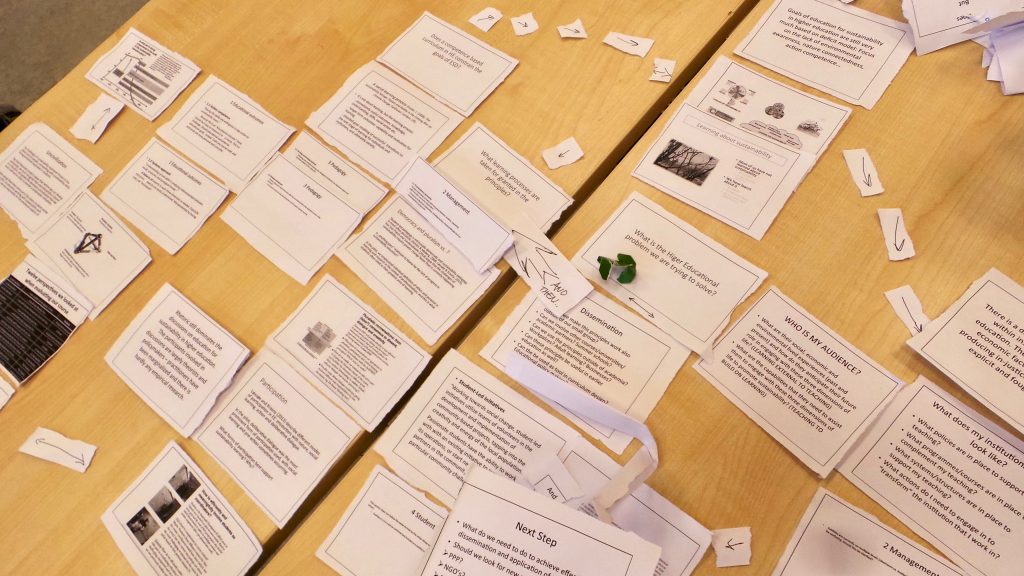
Education for sustainability should support skills in analysing interconnections between social, economic and ecological trends as well as creativity and imagination to explore thoughts, experiences, and feelings.
Understanding the challenges of sustainability requires the ability to identify system characteristics that may encourage sustainable and unsustainable behaviours. Systems thinking is the practice of enhancing our understanding of how and why social, economic and ecological systems behave by seeing them in the context of relationships with each other and with other systems, rather than in isolation (Sterling, 2004). Sustainable development deals with wicked problems, where no single right answer to the challenges exists (Rittel & Webber, 1973; Murgatroyd, 2010). Coming up with solutions to such problems demands divergent thinking and the ability to create new possibilities and solutions where none formerly seemed to exist. Creativity is also needed to work with sustainable development through iterative processes of continuous learning and refinement of concepts and ideas.
Solving sustainability issues demands not only knowledge, but also the ability and willingness to take action. The goal of sustainability education should therefore be on developing students’ action competence. Action competence is a formative ideal for education, which is defined by the student’s capability to take action and deal with unforeseen situations (Jensen & Schnack, 1997). It includes psychological (changes in understanding of the self), convictional (changes in beliefs), and behavioural (changes in actions) dimensions. It also involves questioning what is currently taken for granted, regarding, for example, modes of economic, political, cultural and social development.
As higher education students are future professionals, sustainability education should be connected with learning skills, knowledge, and fundamental concepts that can be applied to professional practice. Working towards sustainability goals demands transformative and transgressive action. Therefore, higher education should not only support students in acquiring a pre-existing professional identity but should also facilitate the creation of new identities of professionalism.
Case studies
This section contains three case studies focusing on the design and development of common aims, the vision and values for sustainability in higher education.
Helsinki framework: Co-design of principles for sustainability education
by Veli-Matti Vesterinen (University of Turku)
Four phases in sustainability education: A design framework for learning, research and planning
by Sydney Ross Singer & Allyson Macdonald (University of Iceland)
Copy but don’t paste: From student-led to collaborative action for sustainability in higher education
by Isak Stoddard (Uppsala University)
References
Jensen, B. B., & Schnack, K. (1997). The action competence approach in environmental education. Environmental Education Research, 3(2), 163–178. http://doi.org/10.1080/1350462970030205
Murgatroyd, S. (2010). ‘Wicked Problems’ and the Work of the School. European Journal of Education, 45(2), 259-279. http://doi.org/10.1111/j.1465-3435.2010.01428.x
Rittel, H. W., & Webber, M. M. (1973). Dilemmas in a general theory of planning. Policy sciences, 4(2), 155-169. http://doi.org/10.1007/BF01405730
Sterling, S. (2004). Higher education, sustainability, and the role of systemic learning. In P. B. Corcoran & A. E. J. Wals (eds.), Higher education and the challenge of sustainability (pp. 49-70). Dordrecht: Springer Netherlands.